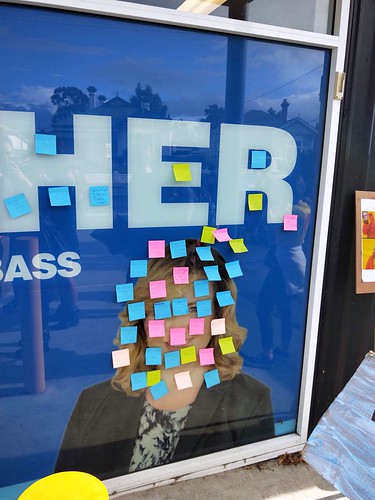We came of age during the Nemesis years — of course we’re turning away from major parties
Bridget Archer #BridgetArcher

Nemesis is over, and what did we learn? For millennials like me, the series covered my entire voting life and has confirmed what many in my generation have long felt: Tony Abbott, Malcolm Turnbull and Scott Morrison were motivated not by civic duty but by the sole pursuit of personal power.
That’s probably obvious to older Crikey readers, but I cannot emphasise how disorienting it was to come of age politically during this time.
In school we are taught the basic principles of Australia’s political system. The concept of representative democracy, the strength of our compulsory voting, and how the free debate of Parliament allows different perspectives to shape legislation for the good of the entire country. While the issues at hand might be complex and the ideological differences frustrating, the goal of creating policy that will improve Australia should always be easy to follow.

All the Morrison-era scandals that Nemesis didn’t have time forRead More
Unfortunately for everyone voting for the first time in this era, the logic being applied was entirely different. The political discussions of the day made no sense and you assumed (because you were told repeatedly) it was because you were “too young to understand”. But the truth is that the decisions made by Abbott, Turnbull and Morrison would only make sense in the context of personal power. That thread of public interest we’d been told would guide us through the most ideologically opposed debates? Almost non-existent.
The National Energy Guarantee policy was tanked because Abbott wanted to get revenge; not because of any robust discussion of its emissions or energy price impact.
Turnbull put marriage equality to a non-compulsory postal survey because he was paranoid the issue would be used as a Trojan Horse against him; not because it was the best way to legislate.
Morrison’s attempt to push through religious freedom laws in the final months of his government was driven by a need for, as Bridget Archer tells it, “control at all times”.
For almost a decade there was no substantial policy debate for young voters to unpack. There was no vision being painted of the future for us to evaluate on its merits, and no good answers for why anything was happening. We started our practical political education in a values void.
Older voters have periods of more earnest and productive politics to look back on. Reading about the legacies of Bob Hawke, Gough Whitlam, Paul Keating or even John Howard is one thing; knowing through first-hand experience how it looks, sounds and feels for a prime minister to champion necessary reform is entirely another. While the Nemesis years would have been no less frustrating for older voters, there must have been comfort in knowing they were a bad patch that could be recovered from.
For Millennials and Gen Z, the bad patch is all we’ve been able to participate in. Sure, we watched on as very young spectators to Labor’s leadership spills from 2006 to 2013 (the Killing Season years). But even throughout the whiplash of Kevin Rudd and Julia Gillard’s power struggles, these politicians still managed to put forward policies and ideas connected to national progress: the ill-fated carbon tax; giving the national apology to the Stolen Generations; commissioning the Gonski review into school funding. When the time finally came for us to get involved, the Coalition replicated all the drama of the power struggles… with none of the political will.

We want politicians to think of young people, not themselves, over climate crisesRead More
Miraculously, the past three governments have not killed our political engagement. Young voters are credited with deciding the 2022 election. But the Abbott-Turnbull-Morrison procession has, unfortunately, set the baseline — a despairingly low bar for future governments to be judged against. It’s not an erosion of trust; it’s that none was built to begin with.
These foundational beliefs will continue to impact election cycles into the near future, because clearing very low bars is not impressive and does not breed loyalty. Millennial and Gen Z voters might put you in office, but meeting their expectations will disappoint. Anthony Albanese is quickly finding this out, with his failure to uphold his own values seeing a fast fall from grace. It may not be a recoverable position.
As Millennials and Gen Z become the majority of voters, the trend towards minor parties and independent candidates will continue to grow. While this is being attributed to ideological shifts, with young people not sliding to the right as we get older, it’s also about the greater perceived accountability of these options. We want to see major reform that dismantles the very system that allowed Abbott, Turnbull and Morrison to thrive — and we know the major parties won’t threaten their own power unless they have no choice.
Nemesis proved the suspicions of young voters right: we were being played. But now we know better, and we’ll be damned if we let that happen again.